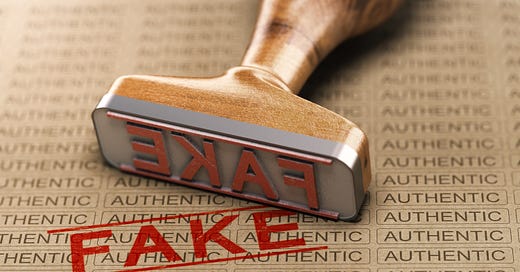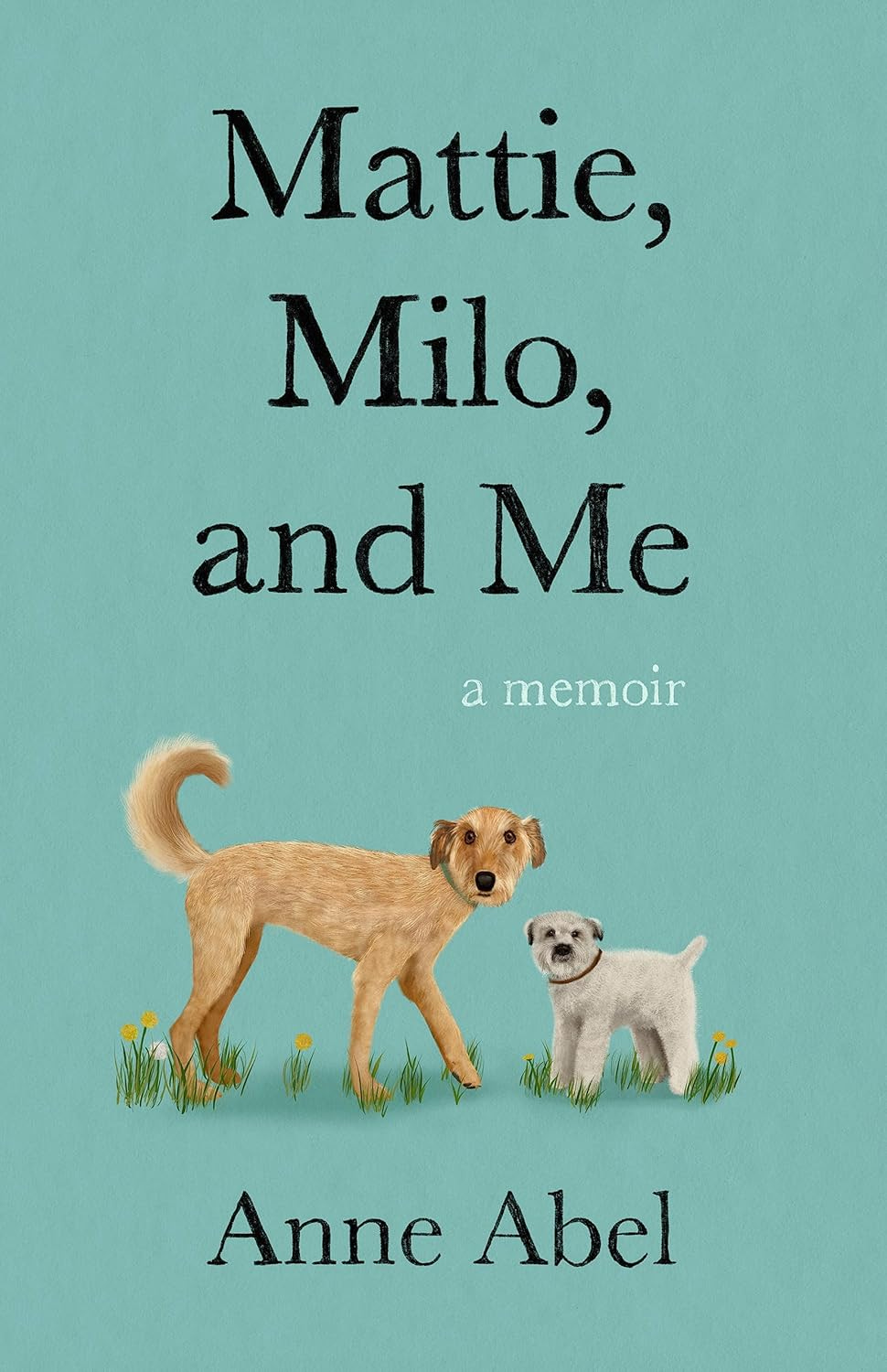Last year there was a surge of concern and reporting after some big-name authors found their own fake biographies on Amazon. Stephanie Land wrote about her experience here on Substack (note the post is behind a paywall) in which she shared that she found a self-published “biography” that was essentially a summary of her memoir, Maid. Other high-profile writers have had similar experiences. A fake biography of Kara Swisher was timed to coincide with the release of her 2024 memoir, Burn Book. The Washington Post story showcases a moment in which Swisher’s wife finds a listing for a book on Amazon with a photo of Swisher that she thinks “looks weird.” It was the fradulent “biography,” and the image of Swisher on the cover was very similar to her memoir cover, only AI-generated. If you’re looking for an example of what one of these fake bios looks like, you can buy one right now about Trevor Noah. Its title is Trevor Noah Biography: Childhood story under apartheid rule, “by” Jeffrey Primm, for $9.59.
The reason the Trevor Noah fake came to my attention is because this same “author,” Jeffrey Primm, perpetrated this same act of violation on She Writes Press author Anne Abel, author of the very popular and well-selling Mattie, Milo, and Me. The fake listing has since been removed, but here’s what it looked like (attached to customer searches for her real books, of course):
“Anne Abel Memoir” is the title because Primm obviously understood the book is doing well and that people would be using that exact search term on Amazon, as so many of us do when we’re looking for an author’s book but don’t necessarily remember the title.
Here is Anne Abel’s real book:
Anne contacted me as soon as she discovered the fake book listing and both of us took action. I filed a copyright complaint with Amazon and Anne did the same. She also left a negative review on the fake book page, calling attention to the violation, and she hired a lawyer.
The counterfeit book had real consequences for Anne’s rankings, we discovered. She shared with me:
The ranking for the counterfeit book went from 680k to 273k overnight while I was seeing an increase in my TikTok followers. It just doesn’t seem right that someone can just do this and get away with it.
And I wholeheartedly agree. Jeffrey Primm is just one of countless scammers out there. We found out from Anne’s lawyer that Primm has been involved in many litigations. If Amazon had refused to remove the listing for “Anne Abel Memoir,” her lawyer said their next step would be a cease and desist, followed by the costly option to hire a private investigator to initiate litigation in Washington State, where Primm lives. The fact that Primm is a known counterfeiter and that the only action Amazon took was to remove “Anne Able Memoir” but not “Trevor Noah Biography” is ludicrous.
According to a March 2025 Geekwire story, Amazon is “ramping up its fight against fakes with help from AI and law enforcement.” How ironic that the very thing that allows these fakes to proliferate is the tool we’ll use to police it—but this is our new AI reality.
That said, this many months later, a flagged counterfeiter is allowed to have his Trevor Noah listing up—still! Why isn’t it their policy to remove all offending products posted by the same criminal vendor? This is evidence that our biggest national marketplace encourages the proliferation of counterfeits with their incredibly weak capacity or desire to take action. And so no, it’s not getting better.
Fake biographies aren’t the only counterfeits you might find attached to your name or your work. Jane Friedman made news last year when she discovered a bunch of AI-generated titles on Amazon that were supposedly authored by her. They weren’t. Amazon didn’t make it as easy as they should have for her to have those books removed from their platform. You can read the whole story here.
Not too long ago I got a somewhat frantic email from one of my authors, perhaps fueled by her fear over this trend, imploring me: “What are you doing about copyright infringement and AI?”
I was a little taken aback by the question because I feel like an ant in this fight against AI. Other than following The Authors Guild guidelines to put statements in our contracts and on our copyright pages stating that we don’t allow large language models to use our books to train their AI, and other than to write the occasional post here on Substack about how detrimental AI is to our industry, what can one publisher do?
The only way we’ll see real sea change here is when the federal government (ever) gets involved, and we currently have an administration that wants to pass a Big Beautiful (gag me) Bill that imposes a ten‑year moratorium on state and local AI regulations. Out of curiosity, I asked ChatGPT if it agrees that there should be a moratorium on AI regulation, and even the technology itself doesn’t agree.
Good to know that the Trump administration wants to deregulate something that its creators collectively agree should be regulated.
Whenever I write about AI I feel a deep exasperation because we’re all using it, we’re all feeding the beast, it’s growing exponentially more powerful every day, and we all want it out of our lives. Talk about a gordian knot.
Authors, you don’t have a lot of recourse, frankly, but you can and should:
• regularly do a spot check on your own name and title of your book on Amazon, on Google, and on whatever AI platform you use and see if you find anything fishy.
• contact Amazon (and your publisher and The Authors Guild) immediately if you find a fake book attached to your name.
• consider trademarking your name and signing up for Amazon’s “brand registry” to ensure further protections from Amazon (you do have to be or have a legal entity to complete this process).
• do a solid and leave a negative review in the event you discover a known fake book. Here’s what I submitted to Amazon on behalf of Trevor Noah today.
If you have other ideas for the grassroots fight, post in the comments. If you have a personal experience with copyright infringement, tell us what you did. We’ll keep trying to fight the good fight. Awareness is key.











Thanks for the info. It gets worse. Did you know that there are websites hosted offshore that steal entire books to give away?
I found out about this accidentally when I went to my buddy, ChatGPT and asked him/her/it to give me a list of all the places where my book is being sold.
That was fun until I came across this one: “Free Download PDF” of my book, If You’d Only Listen: A Medical Memoir of Gaslighting, Grit & Grace. They even included the Amazon description, word for word, and my blurbs, including yours!
I had another chat with Chat and was told that this was but one of many companies who steal books and give them away for “free.” Of course, there’s free and then there’s “free.” Apparently the site collects personal info, sells ads, installs malware, etc.
This one’s address is: https://pdfdrive.to
I could go on with more detail here, but the remedy is to file a DMCA Takedown Notice (Digital Millennium Copyright Act) to the company. Good luck with that. These companies are hosted abroad—apparently my pirate is in the Netherlands.
I haven’t done this yet – it all seems so overwhelming, but I plan to. I’m outraged that they rip off authors and when they’re asked online about whether or not this is legal, here’s their answer:
“https://PDFdrive.to provides links to free educational resources available online. We do not store any files on our servers. Please be aware of copyright laws in your country before downloading. The materials shared are intended for research, educational and personal use in accordance with fair use principles.”
Aye, Matey, it's an ongoing fight between us authors and the pirates of the Caribbean or wherever they plant their flag. May the good guys and gals win!
Thank you Brooke!